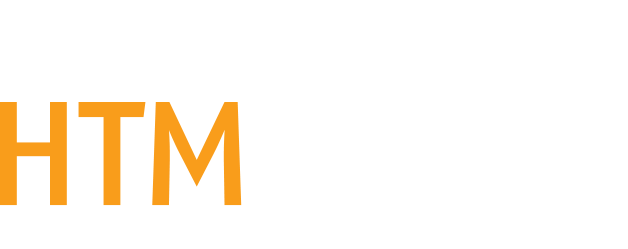By Ray Marden, CBET, CHTM
If you’re an HTM student struggling to write a resume for an entry-level position, I’d like to do my best, along with some tips from industry leaders, to help you craft your story so that your experience, education, character, and soft skills can emerge through a one-to two-page resume.
I asked Adventist Health System Director Mike Philpott what he looks for in an entry-level resume. He said he looks for signs that a person has character. He also scans for trends of initiative and personal growth. Most importantly, he added, with the emphasis of someone who has been fibbed one too many times, “I need the interview to match the resume!”
Too often time is wasted on candidates with fluffed up resumes. I’ve written before on how to burn bridges by exploiting employer-paid training for personal gain. Lying on your resume is a good way to ensure that you’ll never cross any bridge because you’ll burn them on the near side!
Falsely bolstering your resume is a no-no.
To exaggerate yourself is to set a trap for everyone. The most likely outcome of a falsified resume is that your resume doesn’t match your interview and the hiring managers dismiss you as a candidate. If they do hire you on bogus claims, you’ve just set everyone up for failure.
It seems like a commonsense thing to be honest on your resume, but there can be a strong temptation to try to impress, so hiring managers see a lot of fluffing and stretching.
Don’t fall into that trap.
I’m not an expert on how to get HR software systems to pick out your resume, so you may need to do some research on that if it’s applicable to your application process.
I also don’t want to tell you how to format it. Choose a template that is simple and visually striking to. Enlarge and embolden your headings with adequate spacing between topic areas. This makes your resume more powerful and easier to read. Most hiring managers won’t care about format as long as the content is true and easy to look at.
I’m happy to share my resume and template with any reader - click here to download. I’ve been refining it for 20 years and have enjoyed positive feedback from recruiters, HR managers, and hiring managers at all stages of my career.
Disclaimer, I didn’t write my first resume. I couldn’t write a resume then.
But I could always tell stories, so my resume started there.
Maybe a little story can help you get started.
It was two months from graduation day, just seven months before the birth of my first child, and I had no idea in which direction to point the moving truck! I urgently needed a job to orient life around and a chance to set out on my HTM career path.
I needed employers to take me seriously and pronto! I had never written a resume, so I scrounged up $300 and hired a professional to write the resume with me. I couldn’t think in bullet points then, and neither of us really knew anything about what biomed managers might want to see from a student, so I asked her if I could write my work history and accomplishments in a story. Thankfully, she agreed, and we went to work creating my first resume. It turned out to be just what I needed to get the interview. The interview and the resume were a match, so I landed the opportunity just in time to send the moving truck to the pacific northwest.
You see, from the story emerged the professional experience, education and soft skills that the resume writer identified and formed into strong phrases that I couldn’t formulate then, such as, “Experience working collaboratively with customers, peers and superiors in high-stress situations.” I wasn’t able to see that about myself then, but it was true. She helped me validate real-life experience by turning it into bold statements of character. That validation was precious to me at that stage because it inspired some much-needed confidence.
Construction experience strengthened my resume because of who I was, not just because of the tasks I did from day to day. Good hiring managers are looking at what you’ve been up to in terms of initiative and character. Make sure to work that into your content. All experience counts if you can translate it into useful skills. Show a hiring manager that you confidently manage complex situations at your restaurant job, and they’ll see the value.
Be sure you highlight any transferable hard skills such as IT knowledge, financial skills, or facilities and construction experience. These can demonstrate your capacity to grow into larger roles within HTM. Remember, industry experts want to see soft skills more than technical skills. This is especially true for entry-level techs.
When I look through a stack of entry-level resumes, I scan for soft skills by looking for colleague archetypes that I make up in my head. I want the resume to tell me things like “I’m a teamer” or “I’m a teacher” or “I’m a communicator” or “I’m a quick learner”. Hopefully, mine says “I’m a go getter” among other things.
Consciously include your soft skill themes in all versions and sections of your resume. Hiring managers likely all have some soft skill sensing and vetting process. Make sure your soft skills are given careful consideration.
Be honest. Keep it short. Use a simple and bold format. Get help if you need it, especially on your first attempt. Emphasize transferable skills and always make sure your soft skills are on display.
How To Counteroffer Your Salary After Receiving a Job Offer
If the role you want offers something other than what you expected from it during the negotiations, then it’s reasonable to present a counteroffer.
Job Hopping: When It Makes Sense And How To Do It Tactfully
The job market has changed, with job seekers having access to more options than ever before.
4 Ways to Follow Up After a Job Interview
What’s the best way to follow up after a job interview?
6 Tips On Staying Motivated and Productive for the New Year
We hope these tips are helpful in helping you stay motivated and productive in the new year.
14 Ways to Stay Focused at Work Through the Holidays
There are so many competing demands and expectations during the holidays that it is very easy to get overwhelmed and even burn out.
Keeping Employees Engaged
What if I told you that only about 32 percent of U.S. workers claimed to be engaged in their work? Would you be surprised?
Ex-Google recruiter shares the No. 1 thing to do after applying for a job: ‘Everyone fails’ at it
Tthere is one more step that comes after applying which “everyone fails on,” says Nolan Church, former Google and DoorDash recruiter and the current CEO of Continuum, a talent marketplace for executives.
Summer Vacation Is Officially Over. How To Ease Back Into Work
Allowing time for reflection and planning can help avoid the back-to-work blues.
6 Success Tips for Young Professionals
While there’s no secret formula to becoming successful in the workplace, there are steps you can take and skills you can build during the early stages of your career that can help you move toward your long-term goals.
Tips for Deciding Whether to Apply for a Job
How can you tell whether you should apply for a job—or not? Busy job seekers often need to be
careful about which jobs to target.














